Healthcare CRM
Grow your patient acquistion, engagement and retention.
HIPAA-ready (BAA available) and GDPR compliant.

Healthcare and medical service providers need efficient CRM software to manage patient interactions, stay compliant, and simplify admin work. GDPR and HIPAA compliance is essential.
4 Key CRM Benefits
CRM is an effective tool to gain and retain patients. Here are some of the benefits:
1. Personalized patient engagement
Customer Relationship Management can help you identify the preferences, requirements and health history of individual patients. By analyzing patient data, you can tailor communication and marketing campaigns to meet specific patient needs.
Taking a personal approach can improve patient experience, satisfaction, trust, and retention.
2. Enhanced acquisition
Healthcare providers can segment patients by demographics, diagnoses or other criteria and develop targeted acquisition campaigns.
Also, CRM can track the effectiveness of each campaign. This can lead to improved acquisition rates, increased conversions and ultimately improved business revenue.
3. Streamlined operations
Automated patient communication through CRM software can save time and money.
By streamlining and automating processes, the medical staff can focus more on delivering patient care.
4. Improved patient outcomes
Healthcare providers can use technology to monitor patient data, track health outcomes and report on patient care.
Reporting helps healthcare organizations identify areas of improvement and can ultimately lead to better patient outcomes.
Healthcare CRM Features
Discover how Onpipeline’s CRM can help you
360-degree patient profile
Obtaining all the necessary information at the appropriate time can be a difficult task, especially when the data is spread out across various software applications. It can be time consuming to search for the information, and it can be difficult to keep track of all the different sources.
Centralize information
By using a comprehensive data management system, your staff can easily access and store patient records from multiple sources in one centralized location. This can help you streamline the process of obtaining the needed information, thus allowing more time to focus on other important tasks.
Customizable data structure
With our easy to use Healthcare CRM your organization have the option to add custom fields to best fit needs. You can obtain views to deliver personalized experiences, access patient demographics, patient information, activities, conversations, phone calls, emails, etc.
Moreover, with our Healthcare CRM you can easily link to external sources or securely store patient treatments or preferences information. Also, you can get a single view for all your patient details by integrating with other management tools.
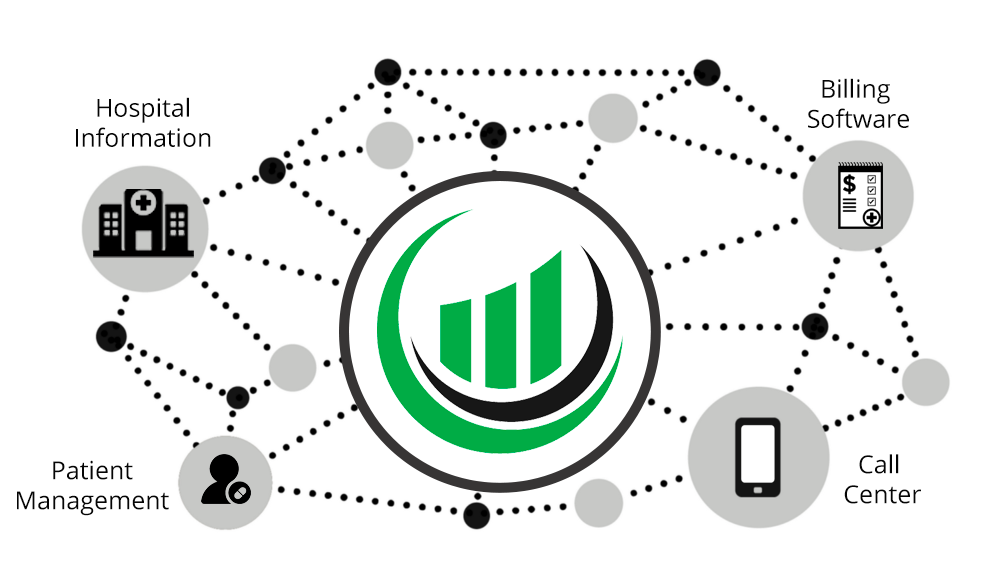
Make patients ready to buy
A sales pipeline will help you visualize your sales process and will show you where your opportunities are. Each stage brings qualified leads to the next phase, keeping in the previous stage those who have not passed the process.
Patient acquisition process
A visual pipeline makes goals easier to achieve by breaking any process down into trackable tasks. It can make the difference in your bottom line.
Comprehensive view
As a result of having a single sales and service solution that integrates with your internal systems, your teams will be able to have a comprehensive, holistic view of your customers. This solution will provide Healthcare teams with a comprehensive understanding of customers’ wants, needs, and preferences.
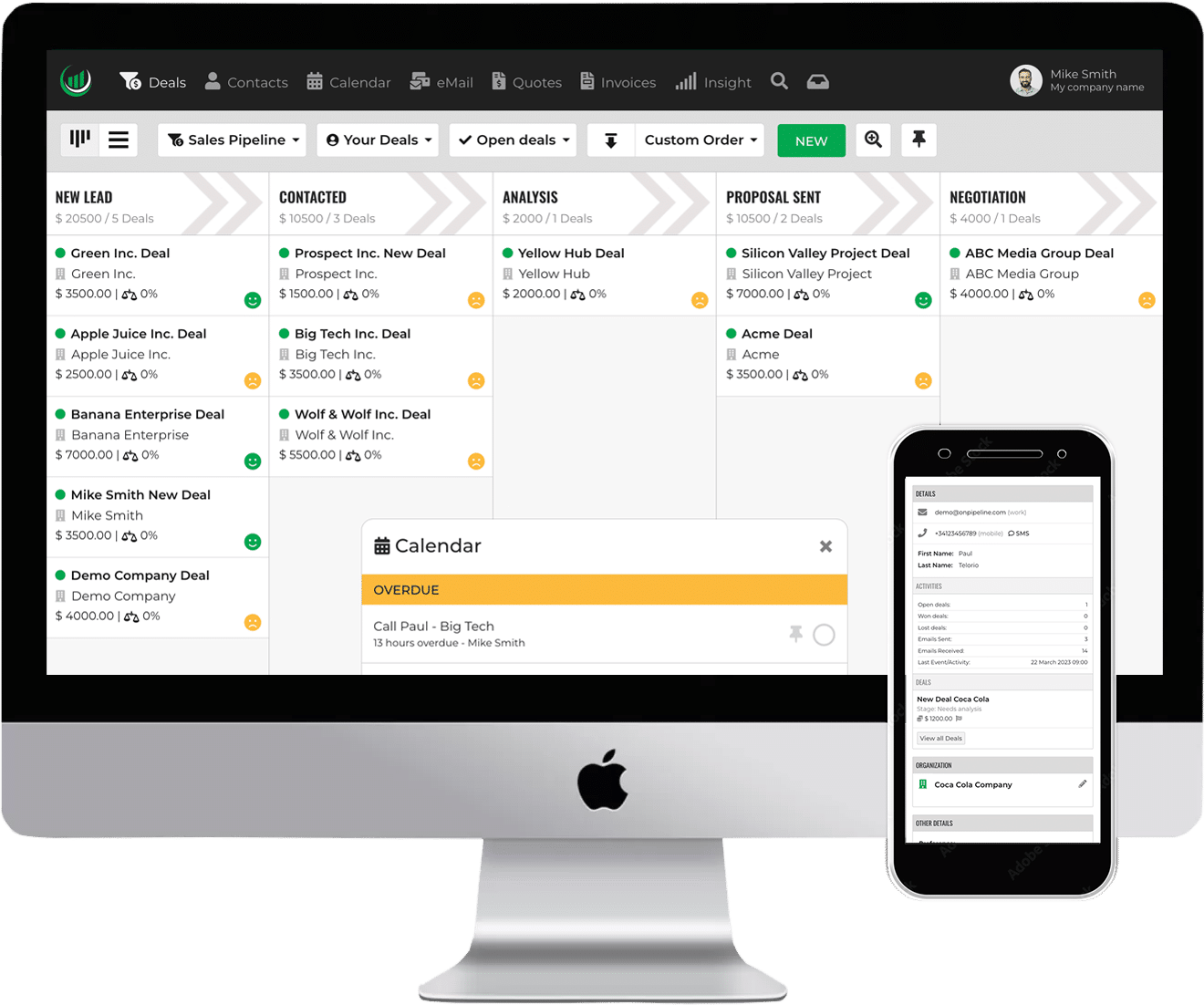
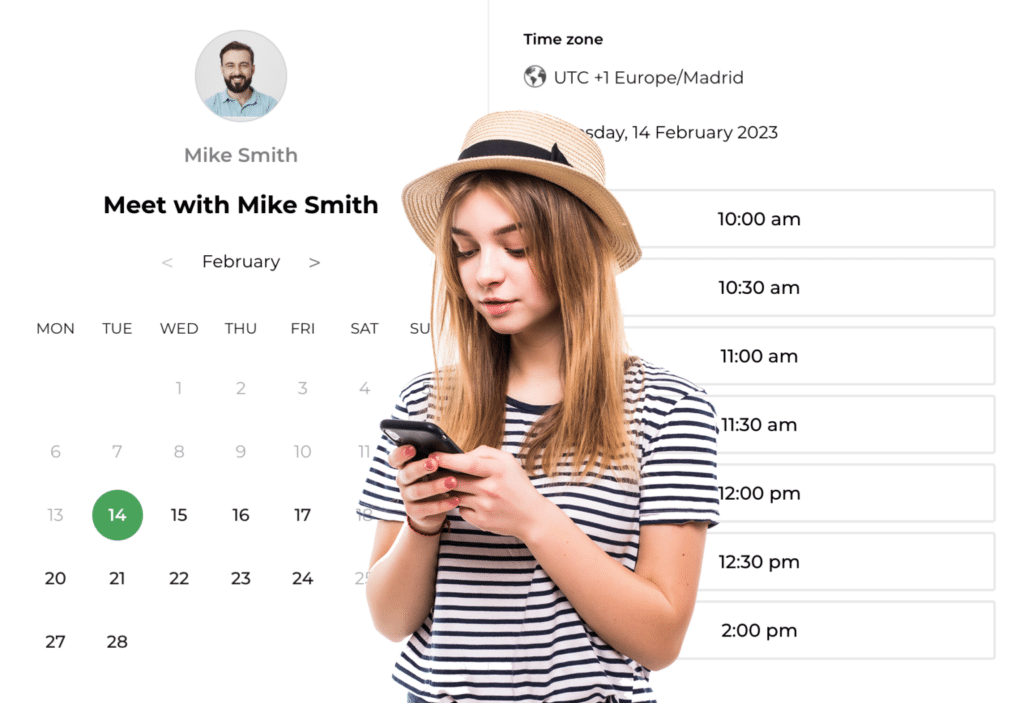
Appointment booking
Save time spent on making appointments over phone and emails with our online appointment booking software for Healthcare organizations.
Doctors can establish their availability and allow patients to make appointments at any time of day or night by utilizing their online booking system.
Patients can receive an automated reminder via email or text message (SMS). You can also customize the reminders to include any information you would like, such as time, date, location, etc.
Free for 30 days!
No contract and no credit card required. Fully operational account. You can try and confirm the same settings by placing an order, or simply let the trial period expire.
Start todayHIPAA Compliance
Onpipeline Healthcare CRM is HIPAA compliant. We meet the physical and technical safeguards as required by HIPAA. We encrypt data stored on our servers. Data transmission is done via HTTPS / Secure Sockets Layer where we obtain A+ overall rating (which is the maximum).
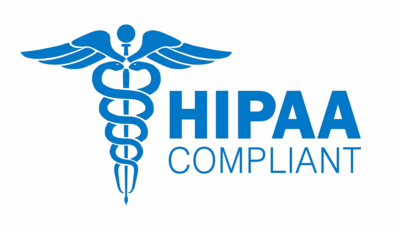
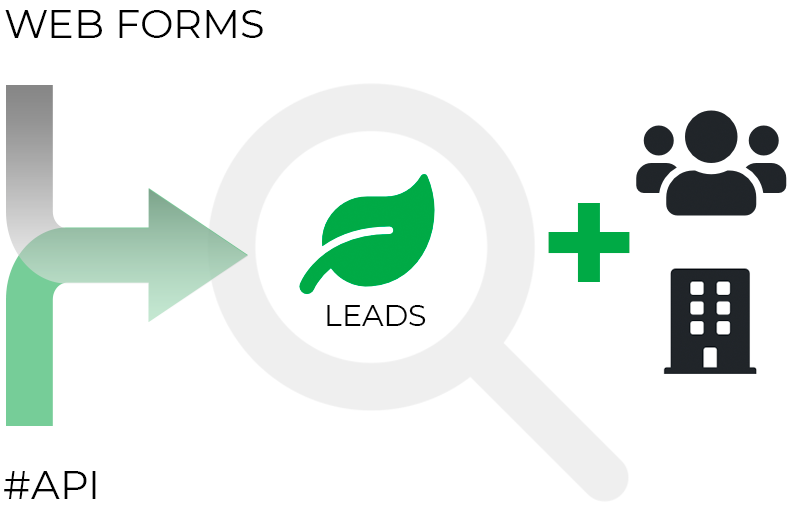
Save New Leads
You can capture new leads directly from your website or 3rd parties (agents) into your Healthcare CRM and automatically create tasks to follow up, send welcome emails, etc.
With Onpipeline you can receive new leads by integrating external systems. Furthermore, you can create unlimited Web Forms to collect new Leads (with referral management). You may use your company logo, colors and styling options to match your branding.
Your marketing team will be able to collect leads from a variety of popular forms, including WordPress Forms (WPForms), JotForm, Gravity Forms, Facebook Leads, and Google Leads.
Integrate CRM with EHR
We provide API and Widgets to organizations that want to connect their Healthcare CRM to EHR. The ability to add custom fields to the CRM database allows integrations with external systems and content personalization.
Through our API (included in all plans) it is possible to sync your CRM data with external applications and databases in real time and have all the information you need within Onpipeline. For example, hospital information, billing details or any relevant data during the sales process may be available within the patient contact information.
Our API is very simple to use even for a mid-level developer. For any technical needs or information, please know our team is available to provide support.
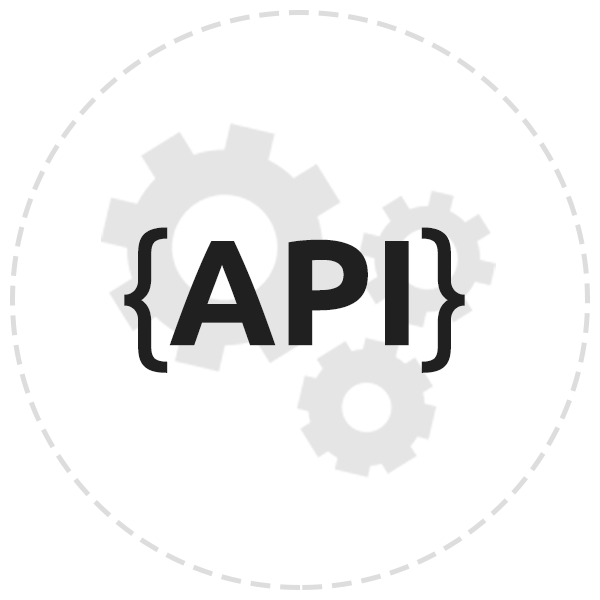
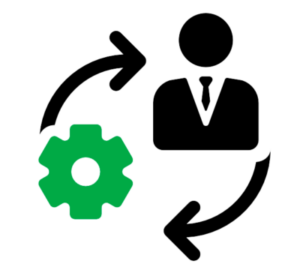
Save time with Automations
Automate and simplify processes across front and back-office. You can save time on recurring tasks like manually sending emails or creating follow-up activities.
For example, you will be able to send an email when a new contact is added, create an event when the deal is moved into a specific stage, automatically reassign a deal to another owner based on certain conditions, etc.
Privacy & Security
Our security policy ensures the confidentiality, integrity and availability of the CRM data we store. Our policies make sure we provide all members of our team with the best tools and practices.
Every day we look for new technologies and we work to add new solutions that can guarantee the security of our customers’ data.
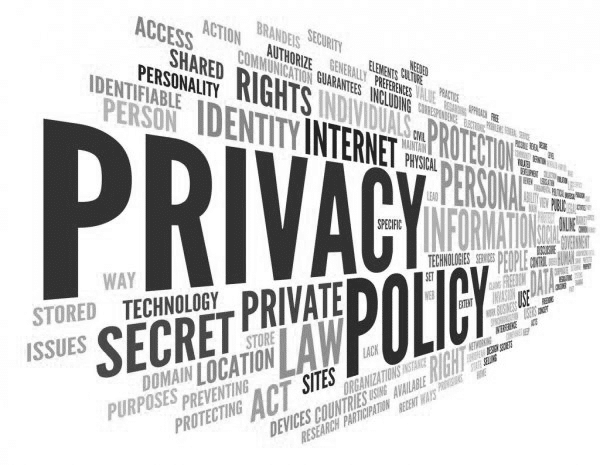
Frequently Asked Questions about Healthcare and Medical CRM
What is Healthcare CRM?
Healthcare CRM is a special CRM system for healthcare providers and organizations. The system assists with patient relationships, simplifies administrative tasks, and improves patient care. A Healthcare CRM is different from general CRMs.
The system has healthcare features such as patient scheduling and tracking patient histories. It also helps with healthcare workflows and follows health industry regulations like HIPAA. The goal is to make patients’ experiences better, improve healthcare efficiency, and support better health outcomes.
A key aspect of Healthcare CRMs like Onpipeline is their customization capability. Onpipeline, while being HIPAA compliant, allows healthcare organizations to tailor their database to store all necessary patient information. This customization helps the CRM system fit the needs of different healthcare practices. It makes it easier to manage patient data and provide high-quality healthcare services.
What features are essential in a Healthcare CRM?
A Healthcare CRM has important features that meet the needs of the healthcare industry. It focuses on patient care, data management, and operational efficiency. Key features include:
- Our system helps store and manage patient data, like contact info, medical history, and appointments.
- We have automated systems to schedule appointments for patients. These systems also send reminders to reduce no-shows.
- We can connect with Electronic Health Records to make sure medical information is accurate on all platforms.
We make sure patient data is handled according to HIPAA regulations – specific to the United States – for compliance. - We have tools for healthcare marketing, reaching patients, and community health initiatives.
- Healthcare practices can customize the CRM and scale it as the organization grows.
These features help healthcare organizations handle patient information better, engage patients more, and streamline administrative and clinical processes.
How does a CRM handle patient privacy?
A CRM protects patient info with strong security and strict data protection policies. Referring to Onpipeline’s approach as an example:
- Onpipeline has a security policy. It protects the confidentiality, integrity, and availability of CRM data. This involves safeguarding against unauthorized access, data breaches, and ensuring data is always accessible to authorized users.
- The company makes sure all team members have the best tools and practices for data security. We receive regular training and updates on security protocols and data privacy regulations.
- Onpipeline is always updating its technology to improve data security. This proactive approach ensures that the CRM stays ahead of potential security threats.
- The CRM follows data protection rules to handle patient data responsibly and legally.
We regularly improve security for Onpipeline by adding new solutions and updating existing ones. This ensures the safety of customer data and helps us adapt to changing cybersecurity challenges.
Onpipeline exceeds data security standards in healthcare and is committed to protecting patient privacy.
What should you consider when choosing a CRM?
When picking a healthcare CRM, think about key factors to make sure it suits your organization’s needs.
- The CRM should have a user-friendly interface. This will make it easy for all staff members to use. It will also reduce the time needed for learning and training.
- Make sure the CRM follows healthcare regulations like HIPAA.
- The CRM needs to connect with current systems like EHRs, billing software, and healthcare tools.
- Choose a CRM that can be customized for your healthcare practice’s unique needs.
- To protect patient data, the CRM needs strong security measures to prevent breaches and ensure privacy.
- When choosing tools for patient communication, consider features like appointment reminders and patient portals.
- The system should be able to grow as your practice grows. It should be able to handle more patients and offer more services.
- Analytical tools are necessary for tracking patient outcomes and operational efficiency. They also help make informed decisions based on data insights.
- Evaluate the cost relative to the features and benefits provided. Consider not just the initial cost but also long-term expenses like updates, support, and additional modules.
Does Healthcare CRM aid in sales?
Healthcare CRMs focus on the healthcare industry and aim to increase sales and revenue. Here’s how Healthcare CRM systems can aid in sales:
- Streamlined Lead Management helps healthcare sales by efficiently managing sales leads from start to conversion.
- Healthcare CRMs help with targeted marketing by analyzing patient data. This analysis attracts new patients and promotes services, which increases sales.
- These systems enhance patient communication, which increases retention and referrals, indirectly boosting sales.
- Analytics tools offer data-driven insights into market trends and patient needs. These insights guide service development, improve services, and can potentially boost sales.
- We can improve customer service by quickly accessing patient histories. This helps us provide personalized service, which makes patients happier and more loyal. It also helps us increase sales.
- CRMs find chances to offer more to patients (Cross-Selling). This includes services and products.
- Automating tasks, such as scheduling and billing, frees up time for sales activities.
- Healthcare CRMs enhance collaboration across departments, aligning efforts towards sales goals.
What are the benefits of Healthcare CRM?
A Healthcare CRM system has many benefits for the healthcare industry over time. It improves operations and offers substantial advantages.
- Healthcare CRMs keep track of patient histories and interactions to build lasting relationships. This leads to increased patient loyalty and retention, which are crucial for ongoing success in healthcare.
- Healthcare providers gather data using a CRM. This helps them make informed strategic decisions. To improve our services, we need to understand patients’ needs, behaviors, and service effectiveness.
- Using CRM data can improve patient outcomes over time. CRMs improve care by promoting proactive care, personalized treatment plans, and patient engagement.
- Improving how things are done and managing patients better can help organizations grow. Over time, this efficiency can transform into cost savings and increased revenue.
- A Healthcare CRM improves marketing, patient service, and care models by using patient data.
- Using a CRM helps create a culture of data-driven decision-making in the organization. This change in culture can improve patient care and business operations over time.
- As healthcare organizations grow, a CRM with scalability can meet their evolving needs. It can accommodate more patients, services, and integrate new technologies.
- A Healthcare CRM can assist with following healthcare rules and protecting patient privacy.
A good CRM system can improve patient trust and satisfaction, which helps build a positive reputation in healthcare. - Using a Healthcare CRM for a long time can bring innovation to patient care. Continuous insights and data analysis find new chances to improve care and efficiency.
In summary, a Healthcare CRM has many long-term benefits. It improves patient relationships and outcomes. It also helps with strategic growth and innovation in healthcare services.
Can I integrate a Medical CRM with EHR?
Yes, you can integrate a Medical CRM with Electronic Health Records (EHR) systems, and Onpipeline facilitates this integration effectively. Onpipeline provides APIs and Widgets specifically for organizations looking to connect their Healthcare CRM to EHR systems. Here’s how Onpipeline supports this integration:
- API and Widgets: Onpipeline offers API and Widgets that enable the seamless connection of the CRM to EHR systems. This integration capability is crucial for healthcare organizations that require consistent and accurate patient data across both platforms.
- Custom Fields for Personalization: The CRM database in Onpipeline allows the addition of custom fields. This feature is essential for integrating with external systems and personalizing content to suit specific healthcare needs.
- Real-Time Data Syncing: Through Onpipeline’s API, which is included in all plans, it’s possible to synchronize CRM data with external applications and databases in real time. This ensures that all necessary information, such as hospital details, billing information, or relevant sales process data, is readily available within the patient contact information in the CRM.
- Ease of Use: The API provided by Onpipeline is designed to be simple to use, even for a mid-level developer, making the integration process more accessible.
- Support for Technical Needs: Onpipeline offers support for any technical needs or information related to the integration. Their team is available to assist with any challenges or queries that may arise during the process.
Integrating a Medical CRM with EHR systems can significantly enhance data accuracy, patient care efficiency, and overall operational effectiveness within healthcare organizations. Onpipeline’s tools and support make this integration process straightforward and manageable.
Can CRM help with patient communication?
Yes, a CRM system like Onpipeline can help with patient communication in healthcare. Here are some ways a CRM facilitates improved patient communication:
- CRM systems centralize patient data, such as contact details and communication history. Healthcare providers can easily access and use patient information for personalized communication.
- CRMs have automated tools for appointment reminders, follow-up messages, and health tips. This automation helps in maintaining consistent and timely communication with patients.
- Healthcare providers can run targeted health campaigns and educational initiatives using CRM systems. These campaigns are based on patient demographics, health history, and previous interactions.
- CRMs gather patient feedback through surveys. This helps healthcare providers improve services and communication.
- Healthcare providers use CRMs to connect with patients. They use different channels like email, SMS, phone calls, and social media.
- Doctors and nurses can use patient information to meet their specific health needs, preferences, and worries.
- CRMs make it easy for providers to schedule and track follow-up care for patients.
In conclusion, CRM systems are very useful for improving patient communication. They lead to happier patients and better healthcare results. They also make healthcare services more efficient.
Free for 30 days!
No contract and no credit card required. Fully operational account. You can try and confirm the same settings by placing an order, or simply let the trial period expire.
Start today